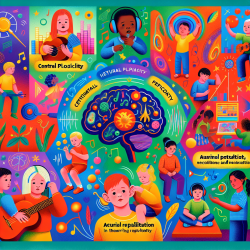Introduction
In the ever-evolving landscape of biomedical sciences, understanding the career interests of Ph.D. graduates is crucial for creating pathways that foster diversity and inclusion. A recent study titled "Biomedical Science Ph.D. Career Interest Patterns by Race/Ethnicity and Gender" sheds light on how career interests change over time and how they differ across social identities. As practitioners, these insights can guide us in tailoring our approaches to support diverse career outcomes for future scientists.
Key Findings from the Study
The study surveyed 1,500 recent American biomedical science Ph.D. graduates, including 276 from underrepresented minority (URM) backgrounds. The results revealed significant trends:
- Decreased Interest in Faculty Careers: Across all social backgrounds, there was a notable decline in interest in faculty positions at research universities from Ph.D. entry to completion.
- Increased Interest in Non-Research Careers: There was a significant rise in interest in non-research careers, such as consulting, policy, and science writing, by the time of Ph.D. completion.
- Social Identity Disparities: Women and URM scientists were less likely to express high interest in faculty careers at research-intensive universities compared to their well-represented male peers.
Implications for Practitioners
As speech language pathologists and educators, these findings offer several implications for practice:
- Encouraging Diverse Career Paths: Recognize and support the diverse career interests of Ph.D. graduates. Encourage exploration of non-traditional career paths that align with individual strengths and interests.
- Mentorship and Support: Provide mentorship and career development opportunities that are inclusive and consider the unique experiences of women and URM scientists.
- Ecological Perspective: Adopt an ecological perspective that considers the broader systemic dynamics influencing career choices, including institutional culture and funding agency priorities.
Encouraging Further Research
The study highlights the need for further research to understand the mechanisms behind these career interest patterns. Practitioners can contribute by engaging in qualitative research to explore the factors influencing career decisions among diverse Ph.D. graduates. By doing so, we can better inform policy and create more effective interventions to enhance workforce diversity.
Conclusion
The findings from the study "Biomedical Science Ph.D. Career Interest Patterns by Race/Ethnicity and Gender" provide valuable insights for practitioners aiming to improve career outcomes for Ph.D. graduates. By understanding and addressing the unique needs and interests of diverse scientists, we can contribute to a more inclusive and innovative biomedical workforce.
To read the original research paper, please follow this link: Biomedical Science Ph.D. Career Interest Patterns by Race/Ethnicity and Gender.










